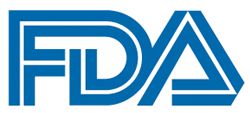Pembrolizumab Approved by FDA for Relapsed/Refractory PMBCL
Pembrolizumab (Keytruda) has been granted an accelerated approval by the FDA for the treatment of adult and pediatric patients with refractory primary mediastinal large B-cell lymphoma (PMBCL), or those who have relapsed after 2 or more prior lines of therapy. The approval is based on results from 53 patients with relapsed/refractory PMBCL enrolled in the multicenter, open-label, single-arm KEYNOTE‑170 trial.

Pembrolizumab (Keytruda) has been granted an accelerated approval by the FDA for the treatment of adult and pediatric patients with refractory primary mediastinal large B-cell lymphoma (PMBCL), or those who have relapsed after 2 or more prior lines of therapy. The approval is based on results from 53 patients with relapsed/refractory PMBCL enrolled in the multicenter, open-label, single-arm KEYNOTE‑170 trial (NCT02576990).
According to results of the trial, at a median follow-up of 9.7 months, the overall response rate was 45% (95% CI, 32-60), comprising a complete response rate of 11% and a partial response rate of 34%.
Among the 24 responding patients, the median time to initial objective response was 2.8 months (range, 2.1-8.5). The median duration of response was not reached (range, 1.1+ to 19.2+ months).
The median patient age was 33 years (range, 20-61), 43% were male, and 92% were white. The ECOG performance status was 0 for 43% of patients and 1 for 57% of patients. Forty-nine percent of patients had relapsed disease refractory to the last therapy, 36% had primary refractory disease, and 15% had untreated relapse.
Prior autologous HSCT had been received by 26% of patients, with 32% having received prior radiation. Patients had received a median of 3 (range, 2-8) prior treatment lines for PMBCL, with all having prior rituximab (Rituxan).
Pembrolizumab was administered at 200 mg IV every 3 weeks until unacceptable toxicity, disease progression, or a maximum of 24 months. The median duration of pembrolizumab exposure was 3.5 months (range, 1 day to 22.8 months).
All-grade adverse events (AEs) occurring in at least 10% of patients included musculoskeletal pain (30%), upper respiratory tract infection (28%), pyrexia (28%), fatigue (23%), cough (26%), dyspnea (21%), diarrhea (13%), abdominal pain (13%), nausea (11%), arrhythmia (11%), and headache (11%). Grade 3/4 AEs included dyspnea (11%), arrhythmia (4%), fatigue (2%), cough (2%), and diarrhea (2%).
Eight percent of patients discontinued treatment due to AEs. The pembrolizumab dose was interrupted due to AEs in 15% of patients. Corticosteroid therapy was required for AEs in 25% of patients.
Twenty-six percent of patients had serious AEs, which included arrhythmia (4%), cardiac tamponade (2%), myocardial infarction (2%), pericardial effusion (2%), and pericarditis (2%).
Grade 3/4 laboratory abnormalities included hypophosphatemia (10%), hyperglycemia (4%), hypertransaminasemia (4%), hypocalcemia (4%), hypokalemia (4%), leukopenia (9%), lymphopenia (18%), and neutropenia (11%). There were six (11%) patient deaths ≤30 days from the start of treatment.
The FDA noted in its approval statement that the agency does not recommend pembrolizumab for patients with PMBCL who require urgent cytoreductive therapy.
The accelerated approval for pembrolizumab in this setting is contingent on the results of a confirmatory trial.
Pembrolizumab has additional approved indications in melanoma, lung cancer, head and neck cancer, Hodgkin lymphoma, urothelial carcinoma, gastric cancer, cervical cancer, and microsatellite instabilityhigh solid tumors.
Examining the Non-Hodgkin Lymphoma Treatment Paradigm
July 15th 2022In season 3, episode 6 of Targeted Talks, Yazan Samhouri, MD, discusses the exciting new agents for the treatment of non-Hodgkin lymphoma, the clinical trials that support their use, and hopes for the future of treatment.
Listen